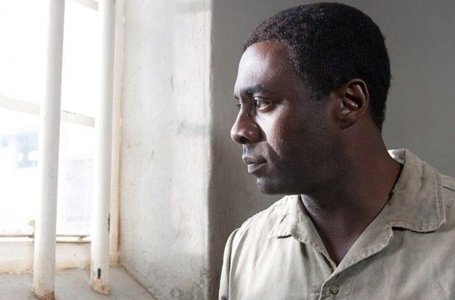CNN — It is not easy to capture a man’s life in 152 minutes, let alone a life as illustrious and complex as Nelson Mandela’s. For London-born actor Idris Elba, who played the South African leader in the 2013 biopic “Mandela: Long Walk to Freedom,” the task was sure to feel Herculean.
“I could never really articulate what it felt like to play Mandela properly in an interview,” he admits in a phone conversation with CNN.
Though the actor is British, and physically bears little resemblance to the late South African leader, Elba recalls the unexpectedly warm reception he received, particularly from extras on set — many of whom were locals who lived through the apartheid era.
“South Africa is very embracing. Even though I’m not from South Africa and was about to play Mandela, they still gave me a lot of love,” he says. By the end of filming, many were even calling him “Madiba.”
The experience, life-changing in many ways, was bound to feel odd. For Elba, the best way to capture not just the man but the feeling of playing him on film, was through music.
Next week will see the release of “Mi Mandela,” a tribute to Mandela made up of songs written and produced by Elba himself, and performed by a mixture of South African and British talent, including Mumford & Sons, the Mahotella Queens and Maverick Sabre.
“There were various sensations I experienced (playing Mandela), and I could never give an answer I was satisfied with. I think this album represents that answer. It allows me to express the feelings of playing him,” says Elba.
The “Luther” actor describes the record as a “character album,” and hopes to produce similar projects for the many other roles he’s taken on over the years. In this respect, “Mi Mandela” is as much about his own journey as it is about Mandela’s. In the album’s title song — the only one that Elba performs on — he has a tongue-in-cheek lyric about the casting choice.
“All the families showed me love, the people wished me well/The whole town wondering how Mandela could be played by Stringer Bell,” he sings, referring to his breakout role in HBO’s “The Wire.”
“It’s the thoughts I was thinking at the time of making that film. Music is a good way to get closer to a character, closer to an actor. It describes the whole journey of playing Mandela. It’s better than any picture, any postcard, any script, any autograph from an actor,” he says.
“I would love to hear a character album from Marlon Brando in ‘The Godfather,'” he admits.
“Just to understand what Marlon was going through at the time of making that film, how he was feeling playing that character. What kind of music would that be? What would it sound like? That would be fascinating for me.”
A link to his father
For Elba, playing Mandela had personal resonance as well, as filming for the role coincided with the death of his father.
“I lost both men around the same time,” Elba confides.
“Mandela reminded me of my dad, and my dad reminded me of him. They were both massive symbols in my life.”
Elba describes how his father, a Sierra Leone-born shop steward working out of London’s Hackney, fought for the rights of union workers at a time in English history when their plight was particularly arduous (it was Maggie Thatcher’s time in power, after all).
“He was always equating himself with Mandela and people like Mandela who were standing up for what they believed in, and I would always succumb to 30-minute lectures about rights,” he recalls.
He co-wrote the song “Tree,” which features on the album and is performed by American artists Audra Mae and Cody Chesnutt, partially as a tribute to his father.
“Somebody tell my father, that we are standing by his tree/ And even though we miss him, we are glad that he’s set free,” the lyrics go.
“That song is particularly moving to me,” says Elba. “As much as I wrote it for my dad, it relates to Mandela too, even more so now.”
Idris Elba’s “Mi Mandela” is set for release on November 24.
